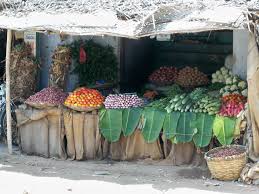Factors of Production In Economics is being discussed in this article.The theory of production factors in economics is important in microeconomics.It considers the factors of production in the production process.Production activities certainly require elements that can be used in a production process. production process consists of natural resources, manpower, capital and entrepreneurship.Thousands upon thousands of different types of resources, or factors of production, are used to produce goods and services.
Thus, when producing clothes, it is necessary to have raw materials, such as cotton obtained from agriculture, and workers who operate the machines, which are necessary for the transformation of cotton into clothing. There is also a need for fuel, electricity, drinking water, fabric pigments, means of transportation, among other elements are required for to manufacture the clothes.
To bring order and manageability to any discussion about these resources, economists have, found it helpful to classify them into four groups: labor, capital, and land.
Factors of Production In Economics
Factor of labor production,
Labor includes all human effort, both physical and mental, going into the production of goods and services. It encompasses the efforts of everyone from physicians to drill press operators to lifeguards — all who work to produce goods and services.
Namely the production factor in the form of human labor.
1) Physical labor, ie more work activities using physical strength / physical. For example: artisans, transportation workers, and others.
2) Spiritual labor, ie more work activities using the power of mind / brain. Example: teacher, minister, director, and others.
Based on capability, labor production factors are divided into:
1) Skilled labor, that is labor which requires special and regular education. Example: doctor, teacher, accountant, and others.
2) Trained labor, which is labor that requires training and experience. Example: mechanic, driver, chef, and others
3) Unskilled and untrained labor (unskilled and untrained labor), ie labor that does not require education and training. Examples: porters, handyman, scavenger, and others.
Capital production factors,
Capital includes warehouses, machinery and equipment, computer,paper clips, and ail other goods that are used in the production of other goods and services and that are not used for final consumption.Capital in the economic sense is the goods or products used to produce the product further. Suppose one makes a net for fish. In this case the net is a capital goods, because the net is the product used to produce other products (fish). In the production process, capital can be in the form of equipment and materials.
By nature, capital is divided into:
1) Fixed capital, ie capital that can be used more than once the production process. Examples: machines, buildings, vehicles, and others.
2) Current capital, ie capital that can only be used / discharged in one production process. Examples: gasoline, diesel, raw materials such as cotton for yarn making, and others.
Based on function, capital is divided into:
1) Community capital, ie capital used in the production process and useful for the community. Examples: bridges, roads, public transport, and others.
2) Capital individual / individual, ie capital owned by someone and become a source of income for that person. Examples: rented houses, rented cars, and others.
By form, capital is divided into:
1) Real capital, ie capital that can be seen in the form of objects, consisting of capital goods and money capital. Examples: machines, buildings, vehicles, and others.
2) Abstract capital, ie capital that can not be seen but very important for the course of production process. Examples: good company name (good will), copyright, patent, company location, and others.
By source, capital is divided into:
1) Own capital, ie capital derived from the company itself. Example: owner’s deposit capital.
2) Foreign capital, ie capital derived from other parties and so on.
Factors of entrepreneurship production
Despite the availability of natural factors of production, labor, and capital, but if not well organized and combined then the production activities will not run smoothly. Therefore, the entrepreneur is required as one of the factors of production to obtain the desired production.
Thus, the entrepreneur’s production factor is defined as one’s ability to organize / combine and combine factors of natural production, labor, and capital. In order for production to run smoothly, an entrepreneur should have the following skills.
1) Managerial skill (managerial skill), namely the expertise in managing the factors of production by using the right ways to obtain maximum results.
2) Technological skill or technological skill, which is a special technical skill that can be used for successful production.
3) Organizational skills or (organizational skill), the expertise to organize various activities of companies that are internal and external.
Any resource could be classified into one of these three groups. To say that something is direct human effort, is man-made, or originates in nature covers all possibilities. Yet economists speak of the four, not three, factors of production. The final factor of production, entrepreneurship, is the performance of a number of critical tasks that must be carried out in all productive processes. Without the performance of these tasks, no economic activity would occur. First, entrepreneurship involves the organization, or the bringing together, of labor, land, and capital to produce a good or service.
Conclusion:
In conclusion, the factors of production are essential components of the economic production process. Land, labor, capital, and entrepreneurship contribute in unique ways to create goods and services that drive economic growth. Understanding the interplay between these factors is crucial for policymakers, economists, and individuals interested in gaining insights into how economies function. By effectively harnessing and managing the factors of production, economies can achieve higher productivity, increased output, and improved living standards.
